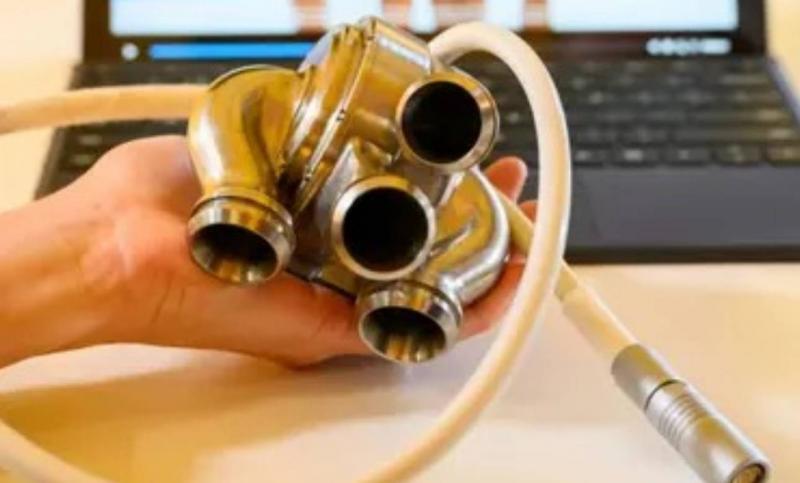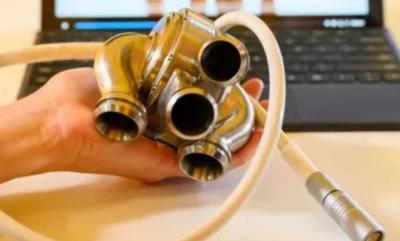For the first time, a fully mechanical heart made by BiVACOR, which utilizes the same technology used in high-speed railway systems, has been implanted inside a human chest. According to a report by New Atlas, this achievement represents a significant step in keeping patients alive while they wait for heart transplantation. The total artificial heart (TAH) was implanted as part of an early feasibility study overseen by the U.S. Food and Drug Administration (FDA).
According to a statement from the Texas Heart Institute where the surgery was performed, the heart is "a dual-ventricular blood pump made of titanium with a single moving part that uses a magnetic levitation rotor to pump blood and replace the ventricles in a failing heart." BiVACOR, which has been working on the device since 2013, states that the advantage of using a magnetically levitated rotor for the circulatory function of the device is that there is no friction, which can be a destructive force for machines, prompting scientists to seek ways to mitigate its effects.
While this device is not the first artificial heart to be used—successful transplantation occurred as early as 1969—it is the first to employ this new application of magnetic levitation technology. The approximately fist-sized artificial heart uses a small rechargeable external control unit to keep it functioning and can pump blood at a rate of 12 liters per minute, which is sufficient, according to BiVACOR, to allow an adult male to engage in physical activity.
The company also notes that other artificial hearts rely on flexible polymer membranes to pump blood, but such components can wear out. With only one part suspended by magnetism and no valves involved, BiVACOR’s heart could theoretically last longer. However, the titanium heart is specifically designed to keep the patient alive while awaiting a heart transplant, which has always been the goal of developing a fully mechanical heart at this stage of transplantation procedures.
Heart failure affects at least 26 million people worldwide. According to the American Heart Association, the demand for heart transplants has doubled over the past thirty years or so, resulting in over 3,400 patients currently waiting for transplants. If BiVACOR's titanium heart passes clinical trials, it could make a significant difference in keeping these patients—along with many others—alive until a heart replacement is available.




